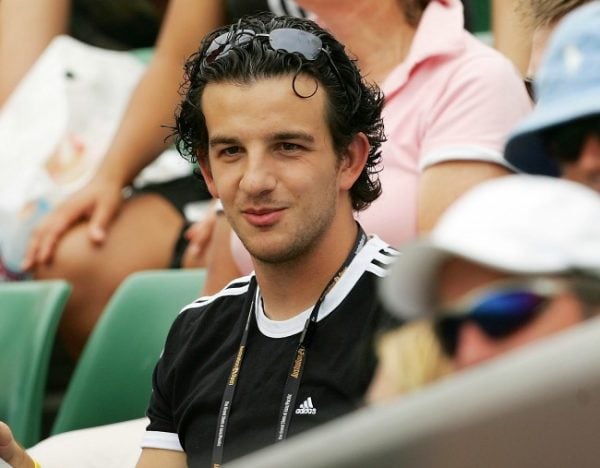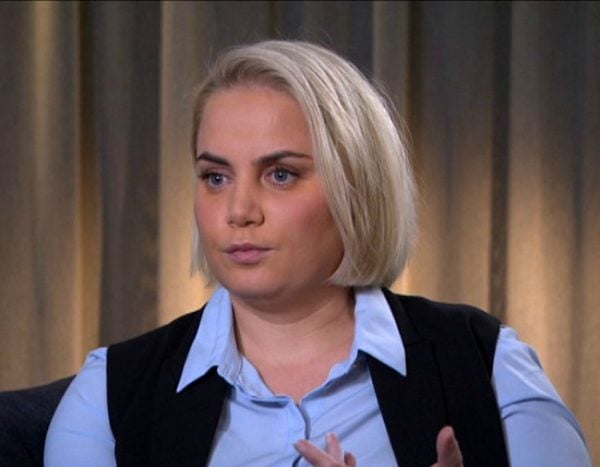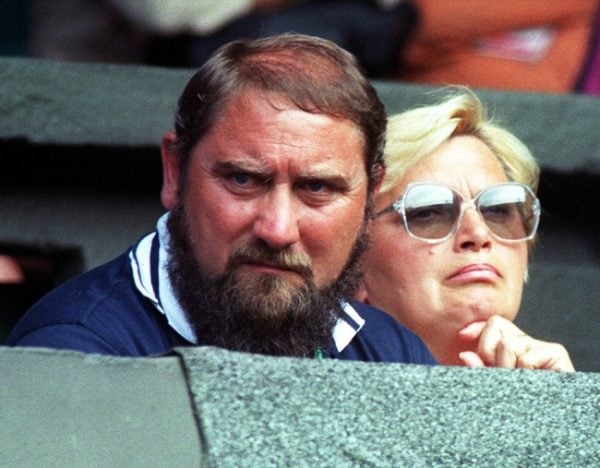In 1999, a shy, 16-year-old Australian named Yelena Dokic stunned the tennis world when she defeated world number one Martina Hingis. Over the next few years the Yugoslavian-born prodigy executed a stunning rise through the rankings, from 129th at the time of that legendary match to world number four in 2002.
She became one of tennis’ golden girls. But while television audiences and stadium crowds cheered Jelena on court, behind closed doors she was allegedly subjected to shocking violence at the hands of her coach father, Damir.
Now aged 34, Yelena has released an extraordinary autobiography detailing the sustained physical and emotional abuse, which began at the age of six. And how there is a good man in this confronting story, one who helped her find a way out of the “dark place” her childhood had built for her.
Her partner and former part-time coach, Tin Bikic.
It was Jelena’s first boyfriend, Formula One driver Enrique Bernoldi, who helped her flee her family home in the middle of the night in 2002 (she had no money, no credit cards; just a tennis racket and bag).
And speaking to The Project on Monday night, she said it was her second, whom she met a year later, that helped her deal with the ongoing psychological impact of the abuse.
“[Tin is] such a positive person and such a calm person,” she said. “We had so much pressure and he had pressure from my father and he had to face so much. One of the positives of the whole situation, [was] meeting him, while I was at a tournament is, yes, it’s him.”
There were moments when things became so dark that she struggled to “find anything positive of why I should stay on this earth”, but now, there is hope.




Top Comments
Read the book. Jelena Dokic needs to get professional counseling whether that is Christian or psychiatric. Interesting she states she was depressed but was never diagnosed by a professionaI. Perhaps she was simply heartbroken by the cad, con man, Borna Bikic who sexually misused Ms. Dokic. Tin was not much better. When he first met her he kissed her long in the mouth. Something which was inappropriate if you're working in a business capacity. I was shocked by the way Jelena mistreated her former fiance. He really went out on a limb for her and she just mischaracterized everything he did for her. I still don't believe she is mentally healthy. For when she was with Tin Bikic I recall her nose was broken. Jelena didn't include this in her book. In her book she covered the very real incident of Tin Bikic behaving violently toward an airline passenger on a JetStar flight. This incident cost Jelena Dokic her sponsorship/endorsement. Another red flag, her current live-in boyfriend doesn't work, has never worked in the relationship. He also worked with his older brother to bilk Jelena out of several millions of dollars. When she went bankrupt and owed a very large tax debt he did nothing to help. Words aren't worth much when action is worth much more. Both Bikic brothers were living off her and doing drugs, partying. None of this was discussed. Tin Bikic is a very unhealthy relationship for Jelena Dokic. She still has a LOT of work to do. If she wants to truly be healthy. She will likely make a lot of money from her book. But it too will disappear as she & Tin will likely run through it. This guy won't marry her after what 15 years! He won't have any children with her, he won't work to help her get out of debt. She's left to do it all. He offers empty platitudes and she believes that is enduring love! How sad. That's not love and further proof of Jelena's lack of self esteem. It exposes her inability to know what love truly is for real. If a man truly loves you, and he sees you're falling apart he will move heaven and earth to help you. Tin Bikic is a fraud his talk is cheap. He's along for the ride he knows she's a celebrity.
Ironic that Jelena Dokic chose the guy who is most like her abusive father. Tin is Damir. I too endured abuse and overcame parental abuse. I know it quite well.
I read her book. But you know there's only so much blame you can continue to place on your parents. After all, abuse is a cycle and abusers are also abused. What will it take to break the cycle? At some point you have to take responsibility for your life and the decisions you make. How will you treat others? There comes a time when you have to do the hard work of overcoming your upbringing. Some of her book leaves out some critical info. Jelena Dokic made a series of terrible decisions and these account for her fall. Her relationship with her live in lover Tin Bikic is not all sunshine and light either. Its manipulative.